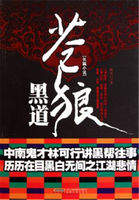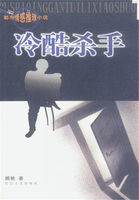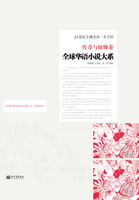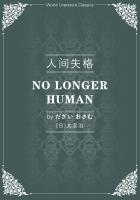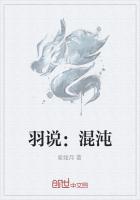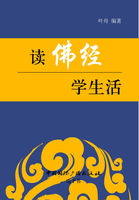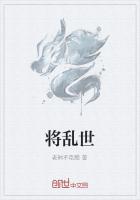“O yes, ”she answered w ith a jaded gait.“Walk wi'me if you will!I do bear in mind that you came to marry me before you knew o'my state.Perhaps—perhaps you are a little better and kinder than I have been thinking you were.Whatever is meant as k indness I am gratefu l for; whatev er is meant in any other way I am angered at.I cannot sense your meaning sometimes.”
“If I cannot legitimize our former relations at least I can ass ist you.And I will do it with much more regard for your feelings than I formerly showed.My religious mania, or whatever it was, is over.But I retain a little good natur e; I hope I do.Now Tess, by all that's tender and strong between man and woman, trust me!I have enough and more than enough to put you out of anxiety, both for yourself and your parents and sisters.I can make them all co mfortable if you will only show confidence in me.”
“Have you seen'em lately?”she quickly inquired.
“Yes.They didn't know where y ou were.It was only by chance that I found you here.”
The cold moon looked aslant upon Tess's fagged face between the twigs of the garden-hedge as she paused outside the cottage which was her te mporary home, d'Urberville pausing beside her.
“Don't mention my little brothers and sisters—don't make me break down quite!”she s aid.“If y ou want to h elp them—God knows they need it—do it without telling me.But no, no!”she cried.“I will take nothing from you, either for them or for me!”
He did not acco mpany her further, since, as she lived with th e household, all was pub lic indoors.No sooner h ad she herself entered, laved herself in a washing-tub, and shared supper with the family than she fell in to thought, and withdrawing to th e table under th e wall, by the ligh t of h er own little lamp wrote in a passionate mood—
My own HUSBAND, —Let me call you so—I must—even if it makes you angry to think of such an unworthy wife as I.I must cry to you in my trouble—I have no one else!I am so exposed to temptation, Angel.I fear to say who it is, and I do not like to write about it at all.But I cling to you in a way you cannot think!Can you not come to me now, at once, before anything terrible happens?O, I know you cannot, because you are so far away!I think I must die if you do not come soon, or tell me to come to you.The punishment you have measured out to me is deserved—I do know that—well deserved—and you are right and just to be angry with me.But, Angel, please, please, not to be just—only a little kind to me, even if I do not deserve it, and come to me!If you would come, I could die in your arms!I would be well con tent to do that if so be you had forgiven me!
Angel, I live entirely for you.I love you too much to blame you for going away, and I know it was necessary you should find a farm.Do not think I shall say a word of sting or bitterness.Only come back to me.I am desolate without you, my darling, O, so d esolate!I do not mind having to work:but if y ou will send me one little line, and say, “I am co ming soon, ”I will bide on, Angel-O, so cheerfully!
It has been so much my religion ever since we were married to be faithful to you in every thought and look, that even when a man speaks a compliment to me before I am aware, it seems wronging you.Have you never felt one little bit of what you used to feel when we were at th e dairy?If you have, how can you keep away from me?I am the same woman, Angel, as you fell in love with; yes, the very same!—not the one you disliked but never saw.What was the p ast to me as soo n as I met y ou?It was a dead thing a ltogether.I became ano ther woman, filled full of new life from you.How could I be the early one?Why do you not see this?Dear, if you would only be a little more conceited, and believe in yourself so far as to see that y ou were strong enough to work this change in me, you would perhaps be in a mind to come to me, your poor wife.
How silly I was in my hapiness when I thought I could trust you always to love me!I ought to have known that such as that was not for poor me.But I am sick at heart, not only for old times, but for the present.Think—think how it do hurt my heart not to s ee you ever—ever!Ah, if I could only make your dear heart ache one little minute of each day as mine does every day and all day long, it might lead you to show pity to your poor lonely one.
People still say that I am rather pretty, Angel(handsome is the word they use, since I wish to be truthful).Perhaps I am what they say.But I do not value my good looks; I only like to have them because they belong to y ou, my dear, and that there may be at least one thing about me worth your having.So much have I felt this, that when I met with annoyance on account of the same I tied up my face in a bandage as long as people would believe in it.O Angel, I tell you all this not from vanity—you will certainly know do not—but only that you may come to me!
If you really cannot come to me will you let me come to you!I am, as I say, worried, pressed to do what I will not do.It cannot be that I shall yield one inch, yet I am in terror as to what an accident might lead to, and I so defenceless on account of my first error.I can not say more about this—it ma kes me t oo miserable.But if I break down by falling into some fearful snare, my last state will be worse than my first.O God, I cannot think of it!Let me come at once, or at once come to me!
I would be content, ay glad, to live with you as your servant, if I may not as your wife; so that I could on ly be near y ou, and get glim pses of y ou, and think of you as mine.
The daylight has nothing to show me, since you are no t here, and I don't like to see th e rooks and starlings in the fields, b ecause I gr ieve and gr ieve to miss you who used to see them with me.I long for only one thing in heaven or earth or under the earth, to meet you, my own dear!Come to me—come to me, and save mefrom what threatens me!—Your faithful heartbroken.
Tess.
49
The appeal duly found its way to the breakfast-table o f the quietVicarage to the westward, in that valley where the air is so soft and the so il so rich that the ef fort of growth requir es but superficial aid by comparison with the tillage at Flintco mb-Ash, and where to T ess the hu man world seemed so different(though it was much the same).It was purely for security that she had been requested by Angel to send her communications through his father, whom he kept pretty well in formed of his changing addresses in the country he had gone to exploit for himself with a heavy heart.“Now, ”said old Mr.Clare to his wife, when he h ad read the envelope, “if Angel proposes leaving Rio for a v isit home at the end of next month, as he told us that he hoped to do, I think this may hasten his plans; for I believe it to be from his wife.”He breathed deeply at the thought of her; and the letter was redirected to be promptly sent on to Angel.
“Dear fellow, I hope he will get home safely, ”murmured Mrs.Clare.“To my dying day I shall feel that he has been ill-used.You should have sent him to Cambridge in spite of his want of faith, and given him the same chance as th e other boy s had.He would have grow n out of it u nder prop er influence, an d perhaps would have taken Orders after all.Church or no Church, it would h ave been fairer to him.”
This was the only wail with which Mrs.Clare ever disturbed her husband's peace in respect of their sons.And she d id not vent this often; for she was as considerate as she was devout, and knew that his mind too was troubled by doubts as to his justice in this matter.Only too often had she h eard him lying awake at night, stifling sighs for Angel with prayers.But the uncompromising Evangelical did not even now hold that he would have been justified in giving his son, an unbeliever, the same acad emic advantages that he had given to the two others, when it was possible, if not probab le, that those very advantages might have been used to decry the doctrines which he h ad made it h is life's mission and desire to propagate, and the mission o f his ordained sons likewise.To put w ith one hand a pedestal under the feet o f the two f aithful ones, and with the other to exalt the unfaithful by the same artificial means, he deemed to be alike in consistent with his co nvictions, h is position, and his hopes.
Nevertheless, he lo ved his misnamed Angel, and in secret mourned over this treatment of him as Abraham might have mourned over the doomed Isaac while they went up the hill together.His silent self-generated regrets were far bitterer than the reproaches which his wife rendered audible.
They blam ed them selves for this un lucky marriage.If Angel had never been destined for a far mer he would never have been thrown with agricultural girls.They did not dis tinctly know wh at had separated him and his wife, n or the date on which the separation had taken place.At first they had supposed it must be something of the nature of a serious aversion.But in his later letters he occasionally alluded to the intention of coming home to fetch her; from which expressions they hoped the division might no t o we its orig in to any thing s o hopelessly permanent as that.He had told them that she was with her relatives, and in their doubts they had decided not to intrude into a situation which they knew no way of bettering.
The eyes for which Tess's letter was intended were gazing at this time on a limitless expanse of country from the back of a mule which was bearing him from th e interior of th e South-A merican Contin ent.towards the coast.His experiences of this strange land had been sad.The severe illness from which he had suffered shortly after his arrival had never wholly left him, and he h ad by degrees almost decided to relinquish his hope of f arming here, though, as long as the bare possibility existed of his remaining, he kep t this change of view a secret from his parents.
The crowds of agricultural labourers who had co me out to the country in his wake, dazzled by representations of easy independence, had suffered, died, and wasted away.He would see mothers fro m English far ms trudging along with their infants in their arms, when the child would be stricken with fever and would die; the mother would pause to dig a hole in the loose earth with her bare hands, would bury the babe therein with the same natural grave-tools, shed one tear, and again trudge on.
Angel's original intention had not been emigration to Brazil, but a northern or eas tern f arm in h is own country.He had co me to this place in a f it o f desperation, the Brazil movement among th e English agriculturists having bychance coincided with his desire to escape from his past existence.
During this time of abse nce he had mentally aged a dozen y ears.Wh at arrested him now as of value in life w as less its beauty than its pathos.Having long discredited the old s ystems of mysticism, he now began to discred it the old appraisements of morality.He thought they wanted readjusting.Who was the moral man?Still more pertinently, who was the moral woman?The beauty or ugliness of a character lay not only in its achievements, but in its aims and impulses; its true history lay, not among things done, but among things willed.
How, then, about Tess?
Viewing her in these lights, a regr et for his h asty judg ment began to oppress him.Did he reject her eternally, or did he not?He could no longer say that he would alway s reject her, and not to say that was in spirit to accept her now.
This growing fondness for her memory coincided in point of time with her residence at Flintcombo-Ash, but it was before she had felt herself at liberty to trouble him with a word about her circ umstances or her f eelings.He was greatly perp lexed; and in his perp lexity as to h er motives in withho lding intelligence he did not inquire.Thus her silence of docility was misinterpreted.How much it really said if he had understood!—that she adhered with literal exactness to orders which he had given and forgotten; that desp ite her natural fearlessness she asserted no rights, admitted his judgment to be in every respect the true one, and bent her head dumbly thereto.
In the befo re-mentioned journ ey by mules thro ugh th e interior of th e country, another man r ode besid e him.Angel's co mpanion was also an Englishman, bent on the same errand, though he came from another part of the island.They were both in a state of mental depression, and they spoke of home affairs.Confidence b egat conf idence.With th at curious tendency evinced by men, more especially when in d istant lands, to entrust to strangers details of their lives which they would on no account mention to friends, Angel admitted to this man as they rode along the sorrowful facts of his marriage.
The strang er has sojourn ed in many more lands and am ong many more peoples than Angel; to his cos mopolitan mind such deviations from the social norm, so immense to do mesticity, were no more than are the irregularities ofvale and mountain-chain to the whole terrestrial curve.He viewed the matter in quite a d ifferent light from Angel; th ought that what Tess had been was of no importance beside what she would be, and plainly told Clare that he was wrong in coming away from her.
The next day they were drenched in a thunderstorm.Angel's companion was struck down with fever, and died by the week's end.Clare waited a few hours to bury him, and then went on his way.
The cursory rem arks of the lar ge-minded s tranger, of wh om h e knew absolutely nothing beyond a commonplace name, were sublimed by his death, and influenced Clare more than all the reasoned ethics of the philosophers.His own parochialis m made him ashamed by its contrast.His inconsist encies rushed upon him in a flo od.He had persisten tly elevated Hellenic Paganism at the expense of Christianity; yet in that civilization an illegal surrender was not certain disesteem.Surely then he might have reg arded that abhorrence of the un-intact state, which he had inherited with the cr eed of mysticism, as at least open to correction when the result was due to treachery.A remorse struck into him.The words of Izz Huett, never q uite stilled in his mem ory, came back to him.He had asked Izz if she loved him, and she had replied in the affirmative.Did she lov e hi m more than Tess d id?No, she had replied; Tess would lay down her life for him, and she herself could do no more.
Hc thought of Tess as she had appeared on the day of the wedding.Ho w her eyes had lingered upon him; how she had hung upon his words as if they were a god's!And during the terrible evening over the hearth, when her simple soul uncovered itself to his, how pitiful her face had looked by the rays of the fire, in her inability to realize that his love and protection could possibly be withdrawn.
Thus from being her critic he grew to be her advocate.Cynical things he had uttered to him self about her; but no man can be always a cynic and live; and he w ithdrew them.The mistake of expr essing them had arisen fro m his allowing himself to be influenced by general principles to the disregard of the particular instance.
But the reasoning is somewhat musty; lovers and husbands have gone over the ground before to-day.Clare had been harsh towards her; there is no d oubtof it.Men are too often harsh with women they love or have loved; women with men.And yet these harshnesses are tenderness itself when compared with the universal harshness out of which they grow; the harshness of the position towards the temperament, of the means towards t he ai ms, of to-day towar ds yesterday, of hereafter towards to-day.
The historic interest of her family—that masterful line of d'Urbervilles—whom he had despis ed as a spent force, touched his sentiments now.Why had he not know n the dif ference between the political valu e an d the imaginative value of these things?In the latter aspect her d'Urberville descent was a fact of great dimensions; worthless to economics, it was a most useful ingredient to the dre amer, to th e moralizer on de clines and f alls.It was a f act that would soon be forgotten—that bit of d istinction in poor Tess's bloo d and nam e, and oblivion would fall u pon her her editary link with the marble monuments and leaded ske letons a t K ingsbere.So does T ime ruthlessl y d estroy h is own romances.In recalling her face ag ain and again, h e thought now that he co uld see therein a flash of the dignity which must have graced her grand-dames; and the v ision s ent that au ra through his veins which he h ad fo rmerly felt, and which left behind it a sense of sickness.
Despite her not inviolate past, what still abod e in such a wo man as T ess outvalued the freshness of her f ellows.Was not the gleanin g of the gr apes of Ephraim better than the vintage of Abi-ezer?
So spoke love renascent, preparing the way for Tess's devoted outpouring, which was then just being forwarded to him by his father; though owing to his distance inland it was to be a long time in reaching him.
Meanwhile the writer's expectation that Angel would come in response to the entreaty was alternately great and small.What lessened it was that the facts of her life which had led to the parting had not changed—could never change; and that, if her presen ce had not attenuated them, her ab sence cou ld not.Nevertheless she address ed her mind to the tender question o f what she co uld do to please him best if he should arrive.Sighs were expended on the wish that she had taken more notice of the tu nes he p layed on his har p, that she had inquired more curiously of him which were h is favourite ballads among those the coun try-girls sang.She indir ectly inquired o f Amby Seedling, who hadfollowed Izz from Talbothays, and by chance Amby remembered that, amongst the snatches of melody in which they had indulged at the dairyman's, to induce the cows to let down their milk, Clare had seemed to like“Cupid's Gardens, ”“I have parks, I have hounds, ”and“The break o'the day; ”and had seemed not to care for“The Tailor's Breeches, ”and“Such a be auty I did grow, ”excellent ditties as they were.
To perfect th e ballads was now her whim sical desire.She pr acticed them privately at odd moments, especially“The break o'the day:”
Arise, arise, arise!
And pick your love a posy,
All o'the sweetest flowers
That in the garden grow.
The turtle doves and sma'birds
In every bough a-building,
So early in the May-time,
At the break o'the day!
It would have melted the heart of a stone to hear her singing these ditties, whenever she worked apart fro m the rest of the girls in this co ld dry time; the tears runn ing down her cheeks all the while at the thou ght that p erhaps he would not, after all, come to h ear her, and the simple silly words of th e songs resounding in painful mockery of the aching heart of the singer.
Tess was so wrapt up in this fanciful dream that she seemed not to know how the season was ad vancing; that the days had lengthened, that Lady-Day was at hand, and would soon be followed by Old LadyDay, the end of her term here.
But before the quarter-day had quite co me so mething happ ened which made Tess think of far different matters.She was at her lodging as usual one evening, si tting in th e d ownstairs ro om with the rest of the fa mily, whe n somebody knocked at the door and inquired for Tess.Through the doorway she saw aga inst the d eclining light a fig ure with the heig ht of a wo man and the breadth of a child, a tall, thin, girlish creature whom she did n ot recognize in the twilight till the girl said“Tess!”
“What—is it'Liza-Lu?”asked Tess, in startled accents.Her sister, whom alittle over a year ago she had left at home as a child, had sprung up by a sudden shoot to a fo rm of this presentation, of which as y et Lu seemed herself scarce able to understand th e meaning.Her thin legs, visible b elow her once long frock, now short by her growing, and her unco mfortable h ands and ar ms, revealed her youth and inexperience.
“Yes, I have been traipsing about all day, Tess, ”said Lu, with unemotional gravity, “a-trying to find'ee; and I'm very tired.”
“What is the matter at home?”
“Mother is took very bad, and the doctor say s she's dying, and as father is not very well neither, and says'tis wrong for a man of such a high family as his to slave and drave at common labouring work, we don't know what to do.”
Tess stood in reverie a long time before she thought of asking'Liza-Lu to come in and sit down.When she had done so, and'LizaLu was having some tea, shc came to a decision.It was im perative that she should go home.Her agreement did not end till Old Lady-Day, the sixth of April, but as the interval thereto was not a long one she resolved to run the risk of starting at once.
To go th at night would be a g ain of twelve hours; but her sister was too tired to und ertake such a distance till the morrow.Tess ran down to wher e Marian and I zz lived, informed them of what had happened, and begged th em to make the best of her case to the farmer.Returning, she got Lu a supper, and after that, having tu cked the younger into her own bed, packed up as many of her belongings as would go into a w ithy basket, and started, directing Lu to follow her next morning.
50
She plunged into the chilly equinoctial darkness as the clock struck ten, for her fif teen miles'walk under the steely stars.In lonely districts nigh t is a protection rather than a danger to a noiseless pedestrian, and knowing this Tess pursued the nearest course along by-lanes that she would almost have feared in the daytime; but marauders were wanting now, and spectr al fears were dr iven out of her mind by thoughts of her mother.Thus she proceeded mile after mile, ascending and descend ing till she came to Bu lbarrow, and about midnight looked fro m th at height in to the ab yss of chaotic sh ade which was all that revealed itself of the vale on whose f urther side she was born.Having already traversed about five miles on the upland she had n ow some ten or eleven in the lowland before her journey would b e finished.The winding road downwards became just visible to her under the wan starlight as she follo wed it, and s oon she paced a soil so con trasting w ith that above it that the difference w as perceptible to the tread and to the smel l.It was the he avy clay land of Blackmoor Vale, and a part of the Vale to which turnp ike-roads had n ever penetrated.Superstitions linger longest on these heavy soils.
Having once been forest, at this shadowy time it seemed to assert something of its old character, the far and the near b eing blended, and every tree and tall hedge making the most of its presence.The harts that had been hu nted here, the witches that had been pricked and ducked, the green-spangled fairies that“whickered”at you as you passed; —the place teemed with beliefs in th em still, and they formed an impish multitude now.

